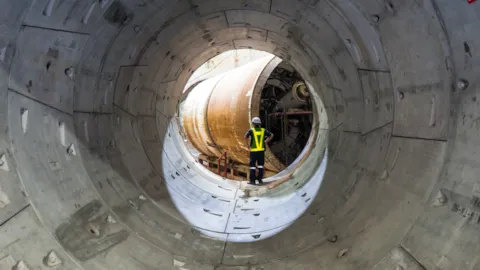Addressing cybersecurity challenges in rail
Proactively address cybersecurity risks to railway systems through tailored guidance and independent assessments focused on safety, resilience, and compliance.
Addressing cybersecurity challenges in rail
Cybersecurity challenges in railway digitalization
Railway systems are undergoing rapid digital transformation, integrating advanced control systems, connected infrastructure, and IoT-enabled assets. While these technologies enhance performance and efficiency, they also expand the attack surface for cyber threats. From signalling systems and control centres to rolling stock and passenger services, critical assets face increasing exposure to malicious activity.
Legacy systems, IT/OT convergence, remote access points, and third-party suppliers further complicate risk management. Against this backdrop, operators, manufacturers, and infrastructure managers must adopt a comprehensive approach to cybersecurity – one that addresses not just compliance, but long-term operational resilience and stakeholder trust.
Cybersecurity advice and assessments for rail systems
DNV offers advisory and assessment services designed to help railway stakeholders manage cybersecurity risks to critical assets. Our experts support customers in identifying vulnerabilities, evaluating cyber resilience, and building strategies that integrate cybersecurity across the full lifecycle of rail systems.
We help organizations in the railway sector stay ahead of cyber threats, before they become incidents covering the full lifecycle: from assessment and protection to monitoring, response, and governance.
We specialize in both IT and OT environments, offering practical, standards-based solutions that strengthen resilience without disrupting operations. Whether you're preparing for NIS2, improving your SOC, or building a security culture, DNV is your trusted partner in cyber resilience. +
We provide:
- Comprehensive cyber risk and resilience assessments.
- Vulnerability and penetration testing and gap analysis.
- Tailored cybersecurity architecture and protection.
- Compliance mapping and assessment (IEC 62443, NIST, ISO/IEC 27001, NIS2).
- Strategy development and maturity evaluations.
- Cybersecurity governance and implementation support.
- Supplier and third-party system evaluations.
- Continuous monitoring, rapid response, and managed services.
- Awareness, training, and cultural change.
Our services are tailored to the unique safety-critical and regulatory demands of the rail industry and can be adapted to rolling stock, signalling systems, control centres, and infrastructure assets. Combining railway expertise with extensive technical cyber security knowledge in a joined up end-to-end solution to identify, manage, and monitor cyber threats.

Rail cybersecurity experts without bias
DNV combines global cybersecurity expertise with decades of experience in rail safety and assurance. We operate across IT and OT systems, helping our clients secure complex digital environments while meeting functional and regulatory demands. Our impartial approach and in-depth technical knowledge make us a trusted partner for developing, assessing, and implementing cybersecurity strategies. We deliver practical, vendor-neutral solutions based on real-world engineering and cybersecurity experience.
From new infrastructure to legacy asset management, DNV supports digital transformation that is secure, resilient, and future-ready. Our integrated SOC services and incident response capabilities are built for resilience and regulatory readiness.
The strength or weakness of cyber protection can be down to people. DNV’s training and awareness programs are tailored to technical and non-technical audiences, bridging the gap between policy and practice.

Benefits of addressing rail cybersecurity with DNV
- Strengthened resilience of safety-critical systems.
- Increased visibility and management of cyber threats.
- Clear, standards-aligned cybersecurity strategies.
- Reduced risk of downtime and service disruption.
- Improved regulatory readiness and compliance.
- Greater confidence from regulators, passengers, and partners.
- Achieve effective protection without disrupting critical processes.
- Minimize impact and downtime from cyber incidents.




